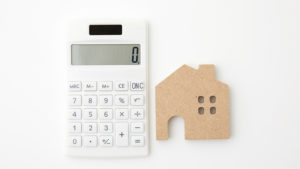Buying or selling a house within a homeowners association is not always easy. There are several moving parts involved, including having to provide a resale certificate. But, what even is an HOA resale certificate in the first place?
What Is an HOA Resale Certificate?
An HOA resale certificate provides the buyer with important information regarding the homeowners association. This includes details about the current HOA budget, any anticipated expenditures for the upcoming year, and the amount the association has in reserve. It should also reveal any pending litigation the association is involved in.
Other than information concerning the HOA itself, the HOA resale certificate also discloses the financial standing of the seller with the association. This includes any unpaid fees or past-due payments as well as all the fees that must be settled upon closing. It should also show any pending violations and other information relating to the property in question. Other terms used to refer to the HOA resale certificate include estoppel, a closing statement, or dues statement
The purpose of the resale certificate is to offer protection to both the buyer and the seller as well as the homeowners association. It gives sellers the opportunity to fully disclose their financial position with the HOA. At the same time, it reduces financial risk for the association.
Should the seller have any outstanding dues, it will become the buyer’s financial obligation to pay those debts after some time. In short, the resale certificate ensures compensation for the HOA. On the buyer’s part, the resale certificate lets them know that the HOA they are buying into is solvent and in good financial condition.
The resale certificate is one of two parts of an HOA resale package. The other part of a resale package is the association’s governing documents. These documents work to inform the buyer of the HOA’s bylaws, covenants, and rules.
Who Prepares the HOA Resale Certificate?
Generally, the association’s HOA management company takes on the responsibility of preparing and handling the resale package, which includes the resale certificate. This is mainly because the management company handles the HOA’s accounts receivable and other financial matters. Thus, they have easy access to all pertinent information.
Plus, management companies are well-versed when it comes to preparing such legal documents, especially when compared to inexperienced HOA boards. Since assembling the resale package is part of a management company’s services, associations can naturally expect to pay a fee for it.
For associations without a management company, the responsibility of preparing the resale package falls on the HOA board or a staff member. Self-managed communities, though, tend to have less experience when it comes to this subject matter. The resulting inaccuracies or errors can then put the association at risk of liability.
Can an Association Charge an HOA Resale Fee?
 Since there are some costs associated with preparing resale packages, the question of whether or not an HOA can charge fees covering these costs naturally arises.
Since there are some costs associated with preparing resale packages, the question of whether or not an HOA can charge fees covering these costs naturally arises.
An HOA resale certificate fee is nothing new, though. Many associations charge this fee, although the right to do so will depend on certain state laws or the HOA’s governing documents.
For instance, several states such as Maryland and Virginia allow homeowners associations to charge resale fees. Washington D.C. also permits resale fees, though the amount must be reasonable. In California, the management company can charge the seller a reasonable fee, which it then keeps. The fee, though, must be based on the actual cost of procuring and delivering the resale package.
How to Get a Resale Certificate
The process of obtaining a resale certificate can vary from state to state and even from association to association. Generally, though, the seller must supply the buyer with the resale package after signing the purchase contract. Communication usually happens between the agents of both the buyer and the seller, though the buyer can also directly request the package from the seller or their agent.
In some states like New Jersey, Florida, and New York, the seller will receive a request from the buyer or the buyer’s agent for the resale package. In California, though, sellers shoulder the full responsibility of providing the resale package and all of its contents (Civil Code Section 4525). That means it is the seller’s legal obligation to do so even without a request from the buyer or the buyer’s agent.
In homeowners associations, the seller typically receives help from the HOA’s management company. The management company has knowledge of all of the HOA’s finances, including the seller’s financial standing with the association. Again, for self-managed associations, the community manager or a board member will need to fill out the form.
For Buyers: What to Look for in a Resale Package
Resale packages contain a lot of information, and it is imperative for buyers to familiarize themselves with all of them. But, certain topics require more emphasis, and reviewing them will help buyers better understand what they are buying into. Here are some of the most critical things to watch out for:
- Seller’s Financial Standing. Since the seller’s unpaid dues and fees can be passed on to the buyer, it is important to make sure the seller has no outstanding debts with the association. If there are any past-due payments or fines, buyers should be ready to negotiate with the seller.
- HOA’s Financial Standing. Buyers should check whether the HOA’s finances are in good shape. It is also worth looking at the association’s financial reports and reserve study. This will give buyers an idea of any potential dues increases or special assessments down the line.
- Governing Documents. Reviewing the association’s governing documents is integral. It ensures buyers do not blindly agree to any rules they are incapable of following.
Why Get Professional Help
Preparing an HOA resale certificate is not difficult, but it is also not very easy. More often than not, HOA boards lack the time or expertise to properly fulfill the task. Inaccuracies and errors can also make the association vulnerable to added costs and liability. As such, it is much better to seek the help of a professional HOA management company.
Clark Simson Miller offers remote HOA management services to homeowners associations. Give us a call at 865.315.7505 or contact us online to learn more about how we can help you.
RELATED ARTICLES:
- What Is An HOA Initiation Fee? Is Charging Homeowners Legal?
- What Is An HOA Reserve Study? Is It Necessary?
- How Should The Board Deal With Delinquent HOA Dues

